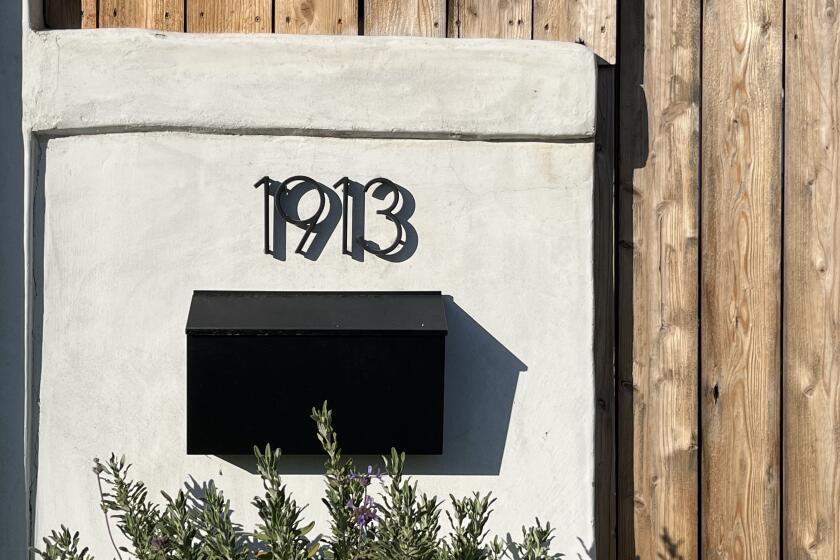
- Share via
Several Saturdays ago, my mom and I walked into our local L.A. cheese shop, which we visit weekly. This store, Say Cheese, in Silver Lake, is owned by Glenn Harrell. Glenn and I have been friends for a long time. His shop is where I get my favorite Cabot cheddar, and Glenn has introduced me to a whole host of other cheeses, including a red cheddar called Red Storm and a truffle brie that goes down as my most favorite ever.
Glenn always has time for me. One day, I was wondering about a cheese in a fantasy book I was reading, “The Inquisitor’s Tale,” and he helped me find that exact cheese, Époisses, in his shop. A stinky cheese for sure, but delicious.
There are no shortage of samples when it comes to Glenn. You can leave his store filled up after trying numerous cheeses on top of crispy crackers.
Owner Glenn Harrell said rising rents are why neighborhood shop Say Cheese is closing after serving Silver Lake, Los Feliz and Atwater Village for more than 50 years.
So you can imagine my sadness when we walked into his shop on this particular Saturday, and Glenn told my mom and me that he had to close his shop by the end of April, due to a rent increase. It turns out Say Cheese faces about a 300% rent increase that Glenn says he simply can’t pay. Rumor has it that in Say Cheese’s place a baked goods and sandwich shop will appear.
“I was waiting for the shoe to drop” is how Glenn explained it to my mom and me. “I knew four and half years ago that the landlord was looking for a new tenant [who could pay more rent].”
This is not the first time one of my favorite shops will have closed because of rising rents. A couple of years ago, Jasmine’s Garden, a flower shop in Los Feliz, disappeared. In its place, you guessed it: another coffee shop. My favorite Silver Lake Italian restaurant, Alimento, closed last year, partly because the cost of running it became too much. I worry that in a couple of years, all the places that make these neighborhoods special will be replaced.
Gentrification is easy to spot if you know where to look. If homes in your neighborhood follow these trends, gentrification might be on the way.
Glenn has been a huge part of Silver Lake and the owner of Say Cheese for 26 years. He is a former member of Silver Lake’s Neighborhood Council. The shop has always been a meeting ground, a place where strangers start spontaneous conversations with each other, where people connect. During my last visit I met a nice woman who chatted with me for a long time about the almost-closing of our local gelateria, Pazzo Gelato. A lot of people know Glenn by name — our next-door neighbor, for example. She was shocked when we told her Say Cheese was closing.
Los Angeles is a city of almost 4 million people, most of whom we’ll never know. But local, longtime businesses like Say Cheese create a community in the middle of this big city that many of us depend on, that make us proud to live where we live. And yet these defining businesses are at risk. As Glenn said, “I think this is happening all over the city of Los Angeles.”
And there’s this problem too: If shops like Glenn’s keep closing, why would anyone choose to live in Silver Lake over any other neighborhood? Unique businesses are one reason property values — and now rents — have increased in Silver Lake in the first place.
The truth is, it’s the little things that matter most in a community. Every neighborhood has a coffee shop (or 20). We don’t want chain businesses replacing the uncommon shops that give neighborhoods their personality. When those small businesses close, we lose what Silver Lake (and Los Angeles) really is.
Ezra Halkett is a 10-year-old who lives in the Silver Lake neighborhood of Los Angeles.
More to Read
A cure for the common opinion
Get thought-provoking perspectives with our weekly newsletter.
You may occasionally receive promotional content from the Los Angeles Times.








